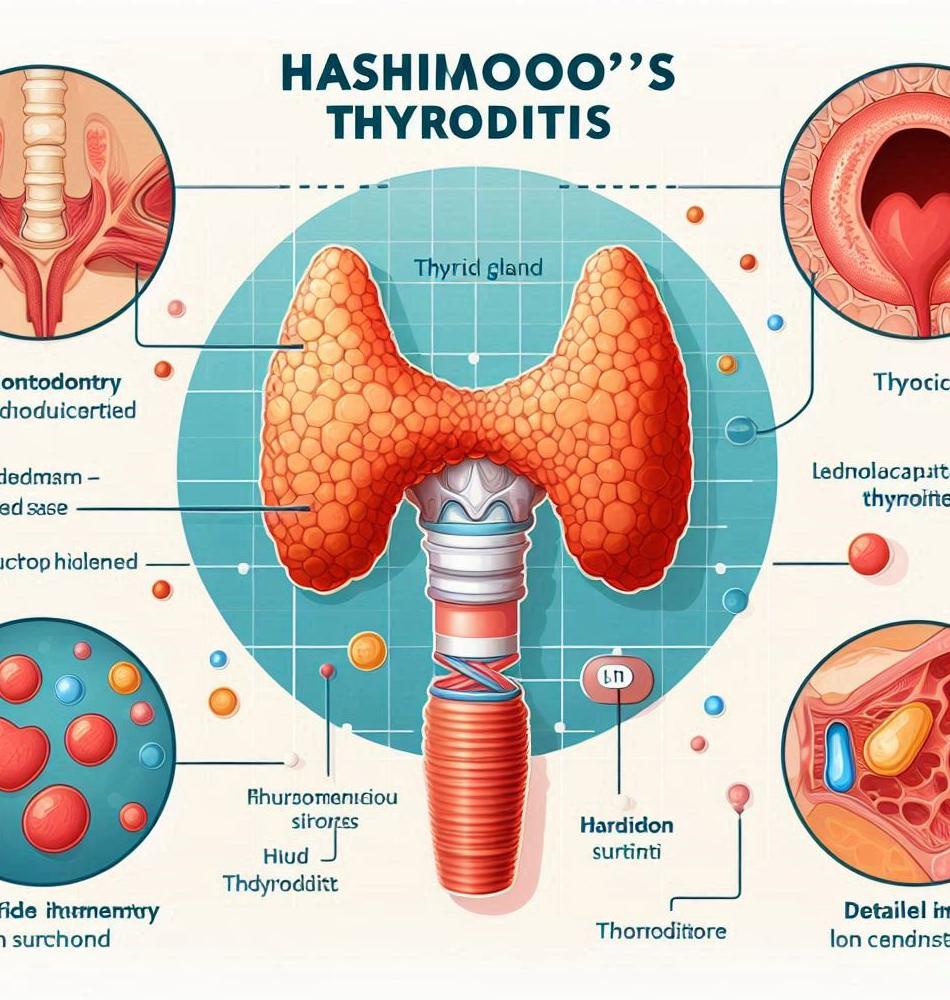Does Hashimoto's Go Away? Exploring the Uncharted Waters of Thyroid Health 🧠
Hashimoto's disease, also known as Hashimoto's thyroiditis, is a chronic autoimmune disorder where the immune system disrupts the normal functioning of the thyroid gland. With its rising prevalence, many individuals grapple with whether this complex condition could innocently evaporate into thin air. Let us embark on a fascinating journey to explore if Hashimoto's goes away and what that means for those affected.
Understanding Hashimoto's Disease 🌼
Before we delve deeper into the specifics of treatment and potential remission of Hashimoto's, let's break down the essence of the disease itself. Hashimoto's thyroiditis can be defined as:
- An autoimmune condition where the body mistakenly attacks the thyroid gland.
- A leading cause of hypothyroidism, meaning the gland produces insufficient hormones.
- A condition that predominantly affects women, manifesting usually in middle adulthood.
Common Symptoms to Watch For 📋
How do you know if you have Hashimoto's? The symptoms can vary widely from person to person. Understanding these signs can help in early diagnosis and management. Some common symptoms include:
- Fatigue and sluggishness
- Weight gain
- Cold intolerance
- Muscle weakness
- Dry skin and hair loss
- Depression and mood swings
- Memory issues and concentration difficulties
The Diagnosis Journey 🩺
Usually, the journey towards diagnosis is an exotic trek through numerous tests and assessments, including:
- Blood tests assessing TSH levels
- Antibody testing for thyroperoxidase (TPO) antibodies
- Thyroid ultrasound to identify abnormalities
These tests pave the way towards understanding the state of your thyroid and whether you're treading into the realm of Hashimoto's.
Does Hashimoto's Go Away? An Intriguing Investigation 🔍
Now we arrive at the million-dollar question: does Hashimoto's disease simply vanish? The straightforward answer is no. The underlying autoimmune nature suggests that the inflammation and symptoms rarely resolve completely but can be effectively managed to minimize impact on one’s quality of life. Let’s break this revelation into simpler bites.
Understanding Remission vs. Cure 🩻
When discussing Hashimoto's, it is crucial to differentiate between remission and cure. Here’s what you need to know:
- A remission refers to a state where symptoms lessen or become non-existent.
- A cure implies that the condition is completely eradicated.
Many patients can attain remission through effective management, allowing them to live relatively symptom-free lives. However, complete eradication remains undiscovered territory.
Factors Influencing Reaching Remission 🧭
Reaching remission can depend on a myriad of factors, including:
- Genetic predisposition
- Environmental triggers and stress levels
- Dietary choices and nutritional support
- Adherence to prescribed medications
- Regular monitoring by healthcare providers
Treatment Options: Finding Your Thyroid Balance 💊
The good news is that while Hashimoto's may not disappear, there are several well-established treatment modalities designed to help restore hormonal balance. Here’s a look at the primary treatment strategies.
Thyroid Hormone Replacement Therapy 🚑
When the thyroid gland underperforms, the most common treatment option is:
- Levothyroxine, a synthetic hormone replacement that acts as a stand-in for the deficiency in natural hormone production.
This treatment is personalized based on frequent blood tests to monitor TSH and T4 levels, ensuring optimal effectiveness.
Addressing Nutritional Needs 🍎
Some individuals with Hashimoto's find that dietary modifications can help in managing the condition. Key approaches include:
- Incorporating anti-inflammatory foods like salmon, leafy greens, and nuts
- Considering gluten-free diets, as some studies suggest a potential link between gluten and thyroid health
- Supplementing with vitamins such as selenium and vitamin D for immune support
The Role of Alternative Therapies 🌱
Beyond conventional approaches, some people have reported positive impacts from alternative therapies such as:
- Yoga and meditation for stress reduction
- Acupuncture to help in alleviating some symptoms
- Herbal supplements, although they should be discussed with a healthcare provider
Frequently Asked Questions About Hashimoto's 🧐
- Can lifestyle changes really make a difference in managing Hashimoto's?
- How often should I have my thyroid levels checked?
- What do I need to do if I suspect I have Hashimoto's?
- How do emotions play a role in Hashimoto's?
- Is there a cure on the horizon for Hashimoto's disease?
Living with Hashimoto's: Tips for a Balanced Life 🌟
Once diagnosed, navigating the path of living with Hashimoto's can feel like a rollercoaster. Here are some practical tips to make the journey smoother:
- Become your own health advocate, be proactive about treatments and necessary lifestyle changes.
- Maintain open communication channels with healthcare providers about symptoms and side effects.
- Establish a supportive network of friends and family to keep you motivated.
- Stay informed about new research and developments related to thyroid health.
Embrace Each Day 🌈
Finally, while it is essential to manage Hashimoto's disease actively, it is equally important to embrace life fully. The condition may be chronic, but it does not define you. Engage in activities that bring you joy and fulfillment, and prioritize self-care.
Conclusion: Your Health Is Your Journey 🚀
In conclusion, Hashimoto's thyroiditis is a formidable foe but not one without footing. Understanding that it may not just simply go away is vital to setting realistic expectations. The path towards managing the condition, while intricate, is achievable with the right mix of treatment, lifestyle choices, and support. Your journey may be uniquely yours, bearing challenges and victories along the way. Ultimately, as you delve into the world of thyroid health, remember that every step taken towards awareness and proper management leads to a more empowered and fulfilled life.
.png)





